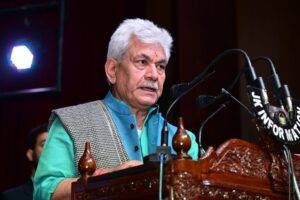Master of Business Administration (MBA) is one of the most preferable and popular choices of postgraduate programs in India among fresh graduates as well as working professionals. With the latest developments in higher education, candidates can now pursue MBA courses in both online and offline modes. Online MBA has seen a boom recently due to increased dependence and availability of digital platforms.
Here’s a list of some parameters that can be considered while Online and Offline MBA options.
- Program Flexibility: The first and foremost difference between an offline MBA and an online MBA degree is the flexibility of the program. In an online MBA, classes, projects, and assignments are done and checked in online mode. On the contrary, in offline mode, aspirants complete their studies by attending the classes in person within a fixed schedule. The offline MBA program has a strict and fixed schedule for assignment submission, exam dates, and class participation.
- Curriculum: The second difference between offline MBA and online MBA is in the curriculum. The curriculum is the same in both offline MBA and online MBA. It includes both theoretical and practical. The only difference is that in online MBA everything happens virtually.
- Admission Process: Another point of difference between online MBA and offline MBA is in the admission process. The offline MBA admission process consists of entrance exams, group discussions, and personal interviews. On the other hand in online MBA courses, the admission process is completely online and very simple. Some institutes take admission as same as offline MBA while others institutes take direct admission by filling up the online application form, uploading documents, and course fee payment.
- Interactivity: In online MBA, students can connect with faculty and peers through discussion forums Learning Management System (LMS). Through LMS, students can attend interactive sessions, virtual seminars, as well as alumni meetings. Offline MBA provides students to have continuous interaction between fellow students and faculty members. Geographical location of students and faculty is a key point of difference in both these modes of MBA.
- Fee Structure: The fee structure in online MBA ranges from 2 to 4 lakh rupees, whereas in offline MBA, the fee structure in a private university ranges from INR 15 to 20 Lakhs. Fees range of Government-controlled MBA Colleges in India falls between INR 3 to 7 Lakhs.
The offline MBA course provides better placement opportunities than the online course. For online MBA, the university provides various types of career assistance services and placement. Several universities conduct placement drives throughout the academic year. Whereas, in offline MBA, the placement drive is usually organized at the end of each final academic year and students get the opportunity to get recruited by the top companies.
Online as well as Offile MBA modes have their own advantages and disadvantages. If any candidate wants to attend offline classes, then he or she can opt for a full-time or regular MBA course and if any candidates want to complete their management education without leaving their job or from a distant location, an online MBA program is best for them. Online MBA programs have been approved of equal value by the University Grants Commission (UGC).



